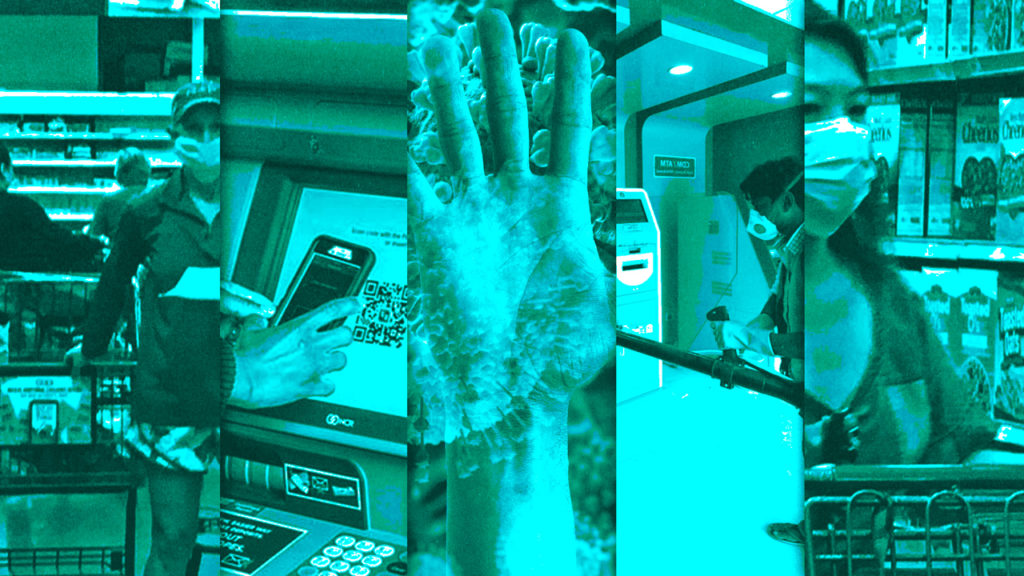We’re searching for the most pressing marketing insights this week.
Spotify’s Ad Spend Rebounded In June
AdExchanger
Spotify’s ad spend in April and May was down 25 percent, but picked back up to a 10 percent decline in June.
Why it matters: Despite the pandemic, Spotify’s Q2 ad-supported revenue increased 11 percent year over year to about $154 million, its premium subscription revenue grew 3 percent to about $2 billion and monthly active users increased 5 percent to 299 million.
Data, Not Digitalization, Transforms The Post-Pandemic Supply Chain
MIT Sloan Management Review
When the pandemic hit, top management’s immediate issue was data, not digitalization.
Why it matters: Decisions around data and measurement of transformational transparency fuel successful and resilient supply chains.
Walmart Is Pushing Harder Into Advertising
Business Insider
Walmart is launching a new dashboard for advertisers that shows how online ads drive in-store and ecommerce sales.
Why it matters: Akin to the technology advertisers use to buy ads on Facebook, Amazon and Google, the measurement tool will make it easier for advertisers to house all their data in one place and update it daily.
Chicago Blackhawks Will Prohibit Native Headdresses At Games
Adweek
The NHL Chicago Blackhawks announced they’re prohibiting fans from wearing Native American headdresses to games and other team events, citing the symbols are sacred and shouldn’t be generalized or used as a costume.
Why it matters: Though they refuse to change their name, the Blackhawks also plan to build a platform that integrates Native American culture across its organization, social channels and staff members.
How PacSun Is Using Data To Connect During The Pandemic
Ad Age
During the pandemic, PacSun identified where its customers were spending time and remained fluid in its messaging.
Why it matters: PacSun CMO Kristen D’Arcy says the biggest change in her role during COVID-19 has been the shift from an omnichannel focus to primarily digital, then back to omnichannel as the pandemic evolved.
These Revised Logos Show How White A Brand’s Leadership Is
Adweek
Two creatives from Goodby Silverstein & Partners redesigned famous logos, like that of Nike and Lyft, to reflect the lack of diversity in the companies’ corporate leadership and boards. The Adidas logo is almost impossible to see as its leaders are 100 percent white, while Lyft is the easiest to read with 55 percent white leadership.
Why it matters: The creatives launched the Instagram side project after discovering that major companies like these are mostly run by white leaders.
Hands Off! How Covid-19 Paves The Way For Fully Touchless Experiences
The Drum
Eighty percent of people in the UK will change the way they engage with public devices, like ATMs and self-service checkouts, and 50 percent say they prefer to use contactless payment where possible, a study conducted by Foolproof found.
Why it matters: In addition to promoting hygiene around public touch screens, businesses must implement customer-centric touchless technology on a familiar device such as mobile.
More Customers Are Shopping Online Now Than At Height Of Pandemic, Fueling Need For Digital Transformation
Forbes
According to a PYMNTS survey, 36 percent of US consumers are now buying retail goods online, up from 29 percent in mid-April when most stores were closed. In addition, 21 percent of consumers are now ordering online from restaurants, up from 13 percent in mid-April.
Why it matters: The same survey revealed the average consumer doesn’t expect COVID-19 to end until February 2021, spurring digital acceleration at a slew of brands including Target, where digital sales increased 141 percent in Q1.
45% Of Consumers Have Changed Brand Preferences During Pandemic, Study Finds
Marketing Dive
Nearly half—45 percent—of consumers have changed at least one brand preference during COVID-19, and 62 percent expect their brand preferences will change permanently before the pandemic is over, a new report from Ketchum found.
Why it matters: Brands must adjust their messaging to connect with consumers in meaningful ways as the global push for diversity has made consumers value ethical and inclusive business practices.
In The Working-Remote Era, “Deepfake” Is No Fake News: It Will Change Advertising Forever
Forbes
Studio closures have increased advertisers’ interest in using deepfake technology to repurpose archival footage.
Why it matters: Though it can be used to spread fake news, deepfake technology, when used in a constructive way, will afford brands the ability to place consumers in ads and enable consumers to virtually try on products.

